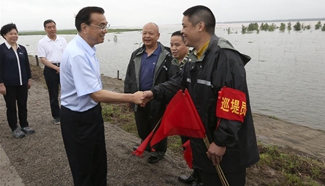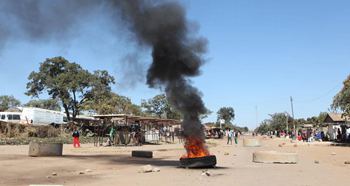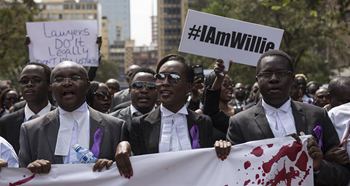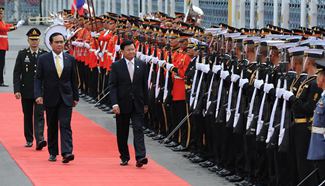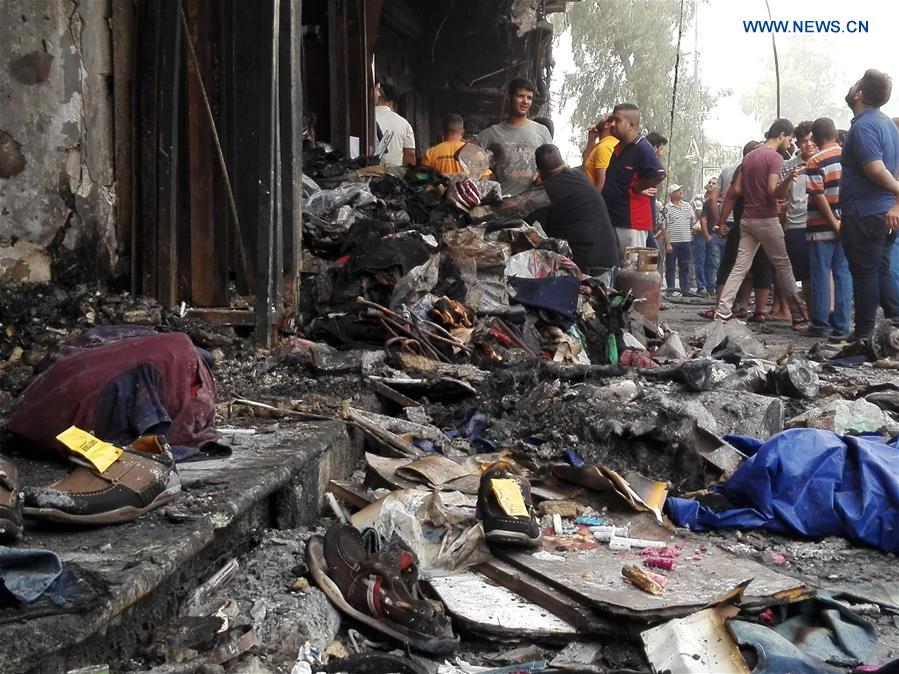
BAGHDAD, July 4, 2016 (Xinhua) -- People gather at the site of explosion in Karrada-Dakhil district in southern Baghdad, Iraq, on July 4, 2016. Iraq began on Monday a three-day national mourning for victims of Sunday's car bombing attacks in the capital city of Baghdad, as the death toll rose to 166. (Xinhua/Khalil Dawood)
BEIJING, July 7 (Xinhua) -- A long-awaited British inquiry into the 2003 invasion of Iraq on Wednesday revealed that Britain's decision to join the U.S.-led war is a blind action to follow its U.S. ally, which spares no effort to intervene in other countries under the cover of democracy.
Some Western countries, in particular the United States, have always tried to force their values on other countries without any respect for their own development paths. To protect their interests and maintain their dominance in the world, they can easily wage a war by fabricating an excuse in defiance of the United Nations' (UN) authority.
The Iraq War Inquiry report reveals that there was "no imminent threat" from Saddam Hussein in March 2003, who the United States claimed possessed weapons of mass destruction (WMD) that have not been found to this day.
Britain's military role in Iraq went "badly wrong" and "ended a long way from success," the report said, adding that Britain went to war before all peaceful options had been exhausted. In fact, its U.S. ally regards military force as a permissible means to topple regimes that are not submissive, even at the cost of hundreds of thousands of innocent lives and a country's destiny.
The same scenario happened in Libya and Syria, where conflicts are still raging and have caused tens of thousands of refugees to flee their homes. Many of those refugees have died in the Mediterranean during their migration to Europe.
The report also pointed out that "the planning and preparation for Iraq after Saddam were wholly inadequate."
That reminded people of U.S. President Barack Obama's reply when he was asked in a Fox News interview to name the "worst mistake" of his presidency -- "probably failing to plan for the day after what I think was the right thing to do in intervening in Libya."
Though the then British Prime Minister Tony Blair and current Prime Minister David Cameron have defended military intervention and planning for the aftermath of the intervention, the two British leaders and the Nobel Peace Prize winner Barack Obama know better when it comes to the consequences of war and the preciousness of peace.
Looking around, the current chronic instability, cycle of violence, and the emergence of extremist groups such as the Islamic State group should be blamed on the hegemonism and interventionism perpetrated by the United States and its Western allies.





